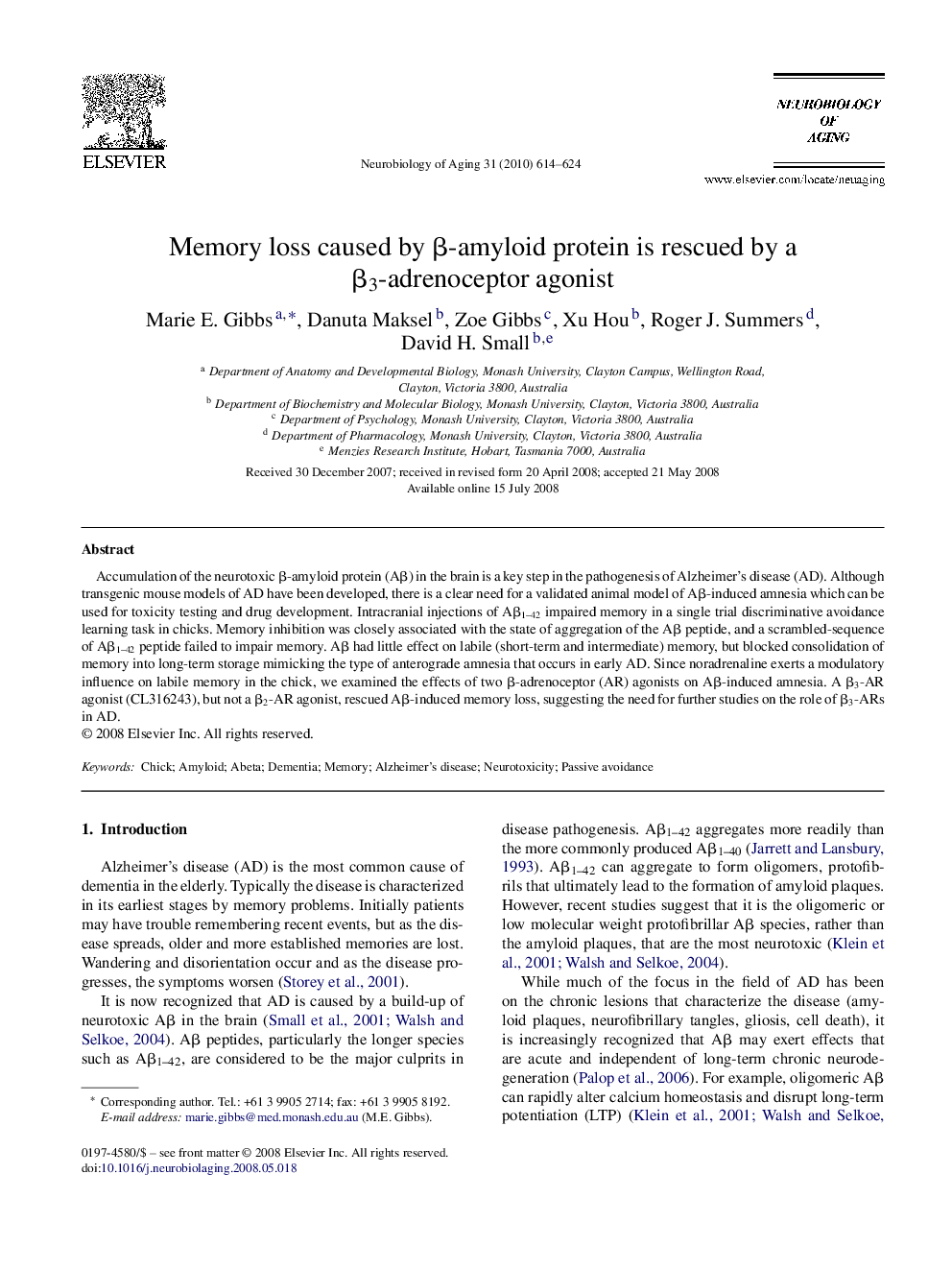| Article ID | Journal | Published Year | Pages | File Type |
|---|---|---|---|---|
| 329367 | Neurobiology of Aging | 2010 | 11 Pages |
Accumulation of the neurotoxic β-amyloid protein (Aβ) in the brain is a key step in the pathogenesis of Alzheimer's disease (AD). Although transgenic mouse models of AD have been developed, there is a clear need for a validated animal model of Aβ-induced amnesia which can be used for toxicity testing and drug development. Intracranial injections of Aβ1–42 impaired memory in a single trial discriminative avoidance learning task in chicks. Memory inhibition was closely associated with the state of aggregation of the Aβ peptide, and a scrambled-sequence of Aβ1–42 peptide failed to impair memory. Aβ had little effect on labile (short-term and intermediate) memory, but blocked consolidation of memory into long-term storage mimicking the type of anterograde amnesia that occurs in early AD. Since noradrenaline exerts a modulatory influence on labile memory in the chick, we examined the effects of two β-adrenoceptor (AR) agonists on Aβ-induced amnesia. A β3-AR agonist (CL316243), but not a β2-AR agonist, rescued Aβ-induced memory loss, suggesting the need for further studies on the role of β3-ARs in AD.
